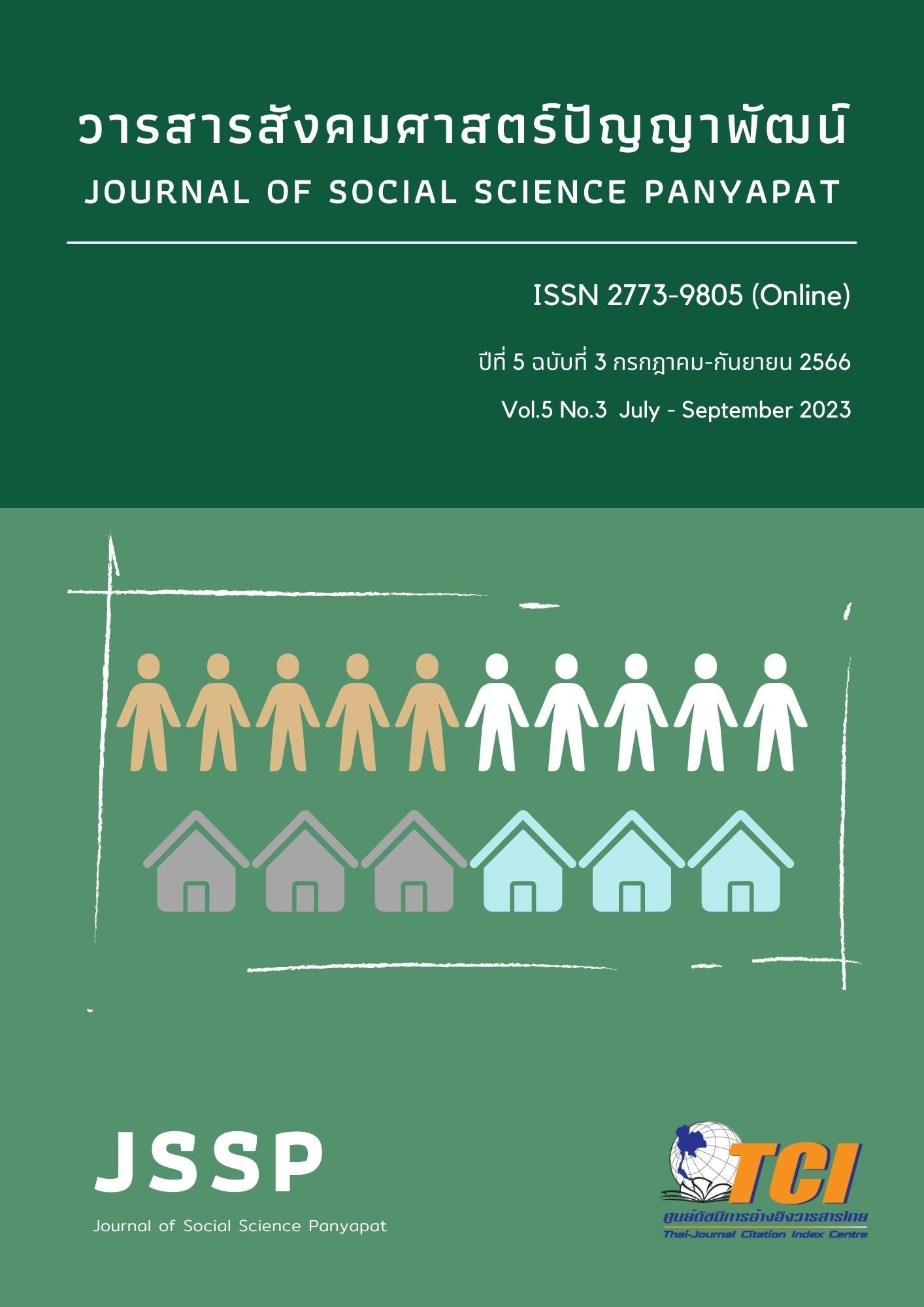Resources and Needs of Household: The Objective Well-being Changing in Northeast Thailand
คำสำคัญ:
Resources, Needs, Objective Well-Being, Rural Transformation, Thailandบทคัดย่อ
Thailand has undergone rapid changes over the years resulting in desirable and undesirable outcomes. The objective of this paper is to study and analyze the resources and needs of household on changing in objective well-being over the past 10 years in the Northeast of Thailand. The data in this study is derived from quantitative research with two surveys conducted in 2005 (n=421) and 2016 (n=253). The samples were selected from using multi-stage sampling techniques and the data were analyzed using descriptive statistics. The findings show that there are many developments in resources and household needs to change in objective well-being over the decade. Land use is decreasing while there are more people with health problems from certain ailments. The obvious positive impact on well-being can be seen in the basic needs and security aspects. However, there are both positive and negative repercussion on social relations. This study found that the Global Happiness of household is increasing. Therefore, this study suggested that better health care should be considered in the development plan especially for non-communicable diseases (NCDs).
เอกสารอ้างอิง
Doyal, L., & Gough, I. (1984). A theory of human needs. Critical Social Policy, 4(10), 6-38.
Hirsch, P. (2011, April). Titling against grabbing? Critiques and conundrums around land formalisation in Southeast Asia. In International Academic Conference on ‘Global Land Grabbing’ 6-8 April 2011 Co-organized and hosted by the Future Agricultures Consortium Institute of Development Studies (IDS), University of Sussex, Brighton, UK. (pp.1-17). Brighton: University of Sussex.
Kuznets, S. S. (1979). Growth, population, and income distribution: Selected essays. Arizona: Norton.
Layard, R. (2011). Happiness: Lessons from a new science. UK: Penguin UK.
McElwee, G. (2008). A taxonomy of entrepreneurial farmers. International Journal of Entrepreneurship and Small Business, 6(3), 465-478.
Office of National Economic and Social Development Board (NESDB). (2015). Rai-ngan karn wikoa sathanakarn kam yakjon lae kam laemlum nai pratade Thai B.E.2556. (In Thai) [The Analysis of Poverty and Inequality in Thailand Report in 2013]. Retrieved 6 April 2022. from https://www.nesdc.go.th/ewt_dl_link.php?nid=10852.
Office of National Economic and Social Development Board (NESDB). (2018). Yutthasart Chad B.E.2561-2580 (Chabub Yor). (In Thai) [National Plan B.E.2561-2580 (Brief Version)]. Retrieved 6 April 2022. from https://www.nesdc.go.th/download/document/SAC/NS_SumPlanOct2018.pdf.
Office of National Economic and Social Development Board (NESDB). (2021). Rai-ngan karn wikoa kam yakjon lae kam laemlum khong pratade Thai B.E.2564. (In Thai) [Poverty and Inequality Report 2021]. Retrieved 18 September 2023. from https://www.nesdc.go.th/ewt_dl_link.php?nid=13081.
Rambo, A. T. (2017). The agrarian transformation in Northeastern Thailand: a review of recent research. Southeast Asian Studies, 6(2), 211-245.
Rigg, J., & Vandergeest, P. (2012). Revisiting rural places. Honolulu, HI, United States: University of Hawaii Press.
Rigg, J., Promphaking, B., & Le Mare, A. (2014). Personalizing the middle-income trap: an inter-generational migrant view from rural Thailand. World Development, 59, 184-198.
Sen, A. (1985). Well-being, agency and freedom: The Dewey lectures 1984. The journal of philosophy, 82(4), 169-221.
Timmer, C. P. (2009). A world without agriculture: The structural transformation in historical perspective. Washington, DC: Aei Press.
United Nations Office for South-South Cooperation. (2018). Good Practices in South-South And Triangular Cooperation for Sustainable Development-Volume 2. New York: UNOSSC.
ดาวน์โหลด
เผยแพร่แล้ว
รูปแบบการอ้างอิง
ฉบับ
ประเภทบทความ
สัญญาอนุญาต
ลิขสิทธิ์ (c) 2023 วารสารสังคมศาสตร์ปัญญาพัฒน์

อนุญาตภายใต้เงื่อนไข Creative Commons Attribution-NonCommercial-NoDerivatives 4.0 International License.


